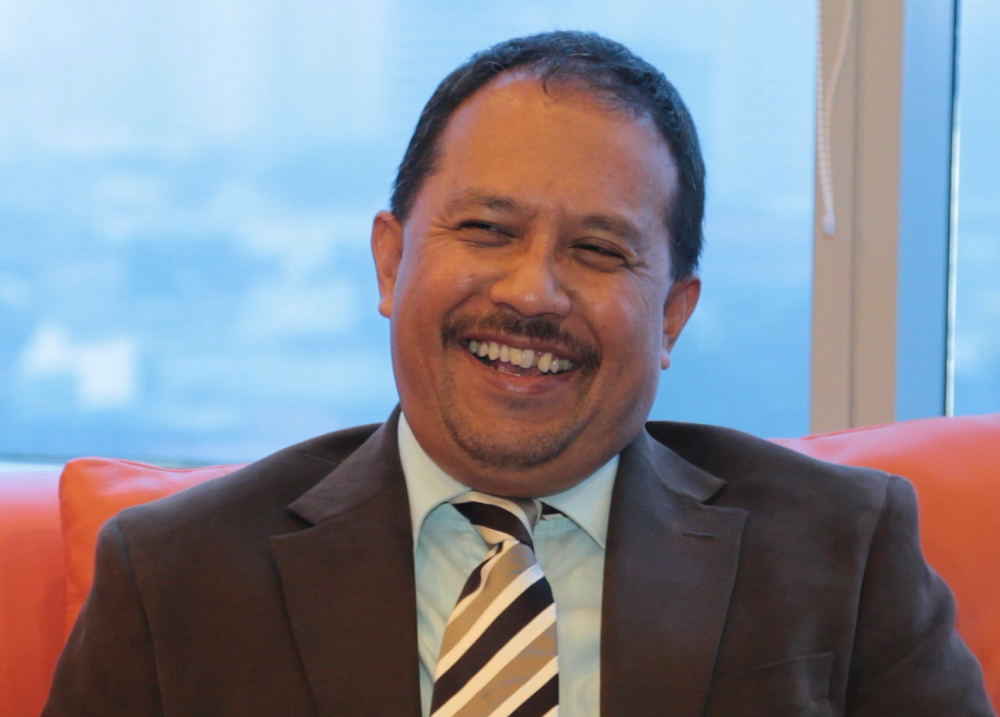Mavcap looking for a few good men (and women)
By Karamjit Singh September 11, 2012
- Skill set and personality important gauge for government VC before investing
- RM100 million left to make new and follow-up investments
 IT is close to a year since Jamaludin Bujang (pic) – previously with the Malaysian Technology Development Corporation – took over as Malaysia Venture Capital Management Bhd (Mavcap) chief executive officer last November.
IT is close to a year since Jamaludin Bujang (pic) – previously with the Malaysian Technology Development Corporation – took over as Malaysia Venture Capital Management Bhd (Mavcap) chief executive officer last November.
Digital News Asia (DNA) caught up with Jamaludin recently to get a feel for how Mavcap is doing, especially over the first seven months of the year, and how much money it has left to invest -- RM100 million (US$32.3 million).
He estimates that will allow the Malaysian Government’s venture capital arm to make between five to seven new investments, and with enough left for carry-on investments in its existing portfolio too.
So far this year has seen Mavcap make one new investment in a Chinese company that is in the online ticketing space. This was a co-investment with one of its existing outsourcing venture partners, QuestMark Asset Management.
It also made one follow-on investment into Tripod Entertainment whose chief executive officer, Leon Tan, has been relentless in promoting his upcoming movie War Of The Worlds: Goliath via social media.
It is not an investment spree to get anyone excited but Jamaludin says Mavcap tends not to make announcements of new investments as the entrepreneurs themselves may not be keen to attract unnecessary attention.
Another issue is that Jamaludin feels that at the point of investment, there is not really much of a story to tell about the investee company. “We would rather wait until there is a real story to tell before coming out,” he says, adding that his team is always looking for good entrepreneurs to invest in.
It is an interesting choice of words. Could a government VC afford to take such an unscientific bet with public money?
“Because, chances are that it is a startup, the business model and all the financial projections that come with it are not going to be accurate anyway,” he says.
The one constant will be the entrepreneur (and his character, personality and skills). As Jamaludin says, “We have to ensure we can get along with the entrepreneur and are comfortable with his skills set.”
VCs, in the end, rely on the entrepreneur for their exit and thus these various soft issues are important aspects to their overall decision making.
One of the soft issues that Jamaludin looks for is to find a serial entrepreneur. He admits this species is rare in the Malaysian context, but he has dealt with them in the United States and they offer a VC peace of mind, he believes.
It boils down to track record. “These serial entrepreneurs have built a number of businesses and sold them off. Hence, investing in their next venture gives you peace of mind,” he explains.
At the same time, he has learnt to be wary of entrepreneurs who have too many areas of interest. “There is one example where, after getting the money, the entrepreneur started putting more time and resources into his other companies.”
Seasoned as Mavcap is, it also knows what the early red flags are with its investees. According to Jamaludin, it is when “things start to slow down” which usually coincides with when the money comes in.
“The level of communications and reporting starts to become infrequent and this can pose a real challenge to us,” he says.
With each of his 15 investment managers having between four to five companies to manage, Jamaludin feels it can be quite challenging for his team to stay on top of things when the entrepreneur starts to slack off on his or her end of the bargain.
“That’s why I say we need to rely on a good entrepreneur. They can make your life easy or very difficult.”
With Mavcap having a fair number of failures under it, all part and parcel of taking high-risk investments in technology startups, it does share the lessons from its success and failures with its peer VCs.
“We tend to do this in the various forums we have, but do not do this with the public and media,” he admits.
The reason is simple. Failure tends to come between three to four years after money goes into a venture and even then, the failure can be due to economic conditions or to the poor execution of the entrepreneur, or to integrity issues.
“Some of the company failures can be acrimonious and we do not want to leave a bad relationship with the entrepreneur,” says Jamaludin. He does reveal that VCs do blacklist entrepreneurs too.
Next: Jamaludin reveals how much Mavcap is seeking and has received for 2013.


